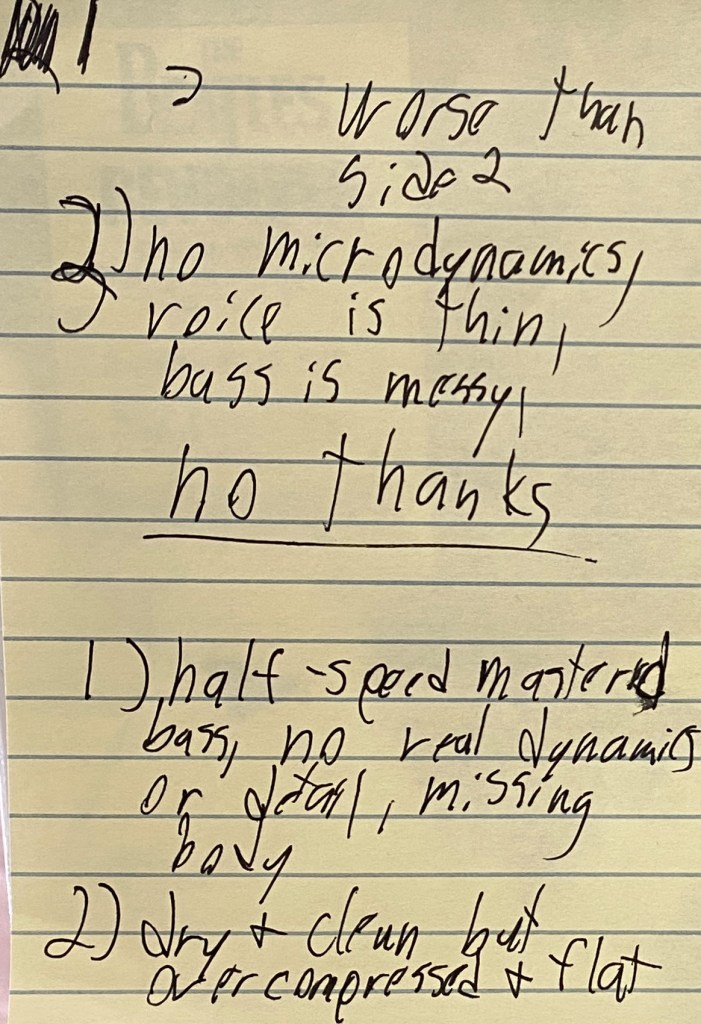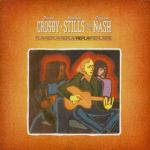Last year a customer wrote to tell me how much he liked the sound of his 2004 Japanese DMM pressing of the Yellow Submarine Songtrack.
After looking into the background of this album, we saw right from the start that it had three strikes against it.
First off, we rarely like Japanese pressings outside of those that were recorded in Japan, such as the direct to disc jazz and classical records we’ve done shootouts for. Other Japanese pressings we like were recorded in the states for the Japanese market: the jazz direct to discs on East Wind come to mind.
Secondly, whenever possible we avoid DMM pressings. They often add what seems to us like digital artifacts to the sound.
And lastly, we rarely like modern remixes, especially modern remixes that obviously use digital processes of various kinds. The remixed Abbey Road is a complete disaster. Nothing that comes out of Abbey Road these days should be expected to sound good. Their work is a disgrace.

So rather than buy the Japanese-pressed version of the album, we cheaped out and just bought a UK one for half the price.
We half-expected the worst and that’s pretty much what we found.
I used to sell this very version of the album back in 1999 when it came out. I thought it sounded just fine. That was about twenty years ago. My all tube system was darker and dramatically less resolving than the one I have now.
Scores of improvements have been made since then to every aspect of analog reproduction, something we discuss endlessly on this blog.
We Have No Idea
To be fair, we admit that we have no idea what the Japanese pressing of the album sounds like. We’ve never played one.
So what’s wrong with the UK pressing of the Yellow Submarine Songtrack?
From the notes reproduced on the left — incidentally some of the last I wrote before I retired — you can see that the overall sound struck me as dry, thin and CD-like.
The vocals sound much more artificial on these remixed tracks than they do on the vintage Beatles’ pressings we offer. When a Beatles album has an unnatural, overly-processed midrange, it’s pretty much game over.
 The new mixes also lacked Tubey Magic, which, for any album by The Beatles, is every bit the kiss of death that a phony midrange is. The Beatles albums remastered on Heavy Vinyl that we’ve played left a lot to be desired in that area, in addition to their many other faults.
The new mixes also lacked Tubey Magic, which, for any album by The Beatles, is every bit the kiss of death that a phony midrange is. The Beatles albums remastered on Heavy Vinyl that we’ve played left a lot to be desired in that area, in addition to their many other faults.
It’s possible that the Japanese pressing of The Yellow Submarine Songtrack has none of the problems we found on the UK pressing we played. If such a thing turned out to be true, it would be a first in our experience. We can’t say it’s impossible. What we can say is that it is very unlikely.
 Hot Stamper Pressings of the Music of The Beatles Available Now
Hot Stamper Pressings of the Music of The Beatles Available Now








